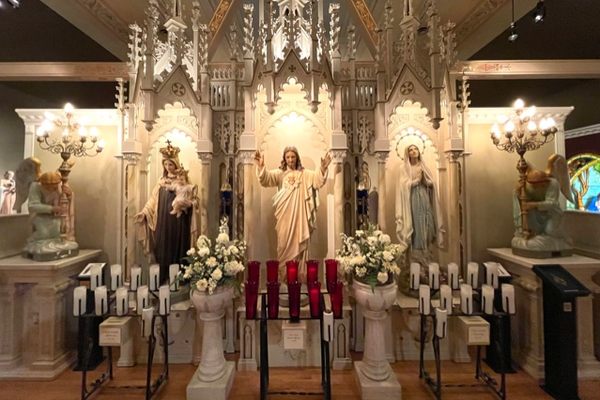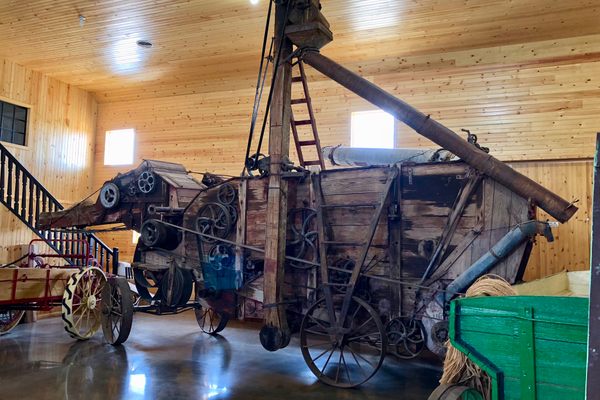About
The Virgin of Guadalupe is the most revered and well-known religious icon in Mexico. Each year, millions of parishioners arrive at Basilica of Our Lady of Guadalupe to ask for miracles or thank her for making them happen, often leaving gifts in their wake.
This museum exhibits a small sample of these gifts. Although it may look like a warehouse or a parking lot, do not be fooled by the entrance. Head through the two long corridors that lead to the museum, and you'll be rewarded with a glimpse of the unique collection sheltered inside.
You'll first see traditional votive offerings. To give thanks for a miracle, it's customary to paint the event in question and a phrase of gratitude on wood or "lamina." There are paintings that give thanks for having survived an accident, a fight, or an illness. Among the unusual gifts of this sort are a Virgin made of bread and a spoon on which a girl nearly choked to death.
You'll also see votive offerings related to sports, such as trophies or medals. Among them are the replica of the golden boot that the soccer player Hugo Sánchez donated and a medal that the welterweight boxing champion Luis Villanueva Paramo, also known as "Kid Azteca" won in 1932. There are also political and merit medals, political ribbons, and even a trophy for the best pig breeder of 1962. An additional section of the museum is dedicated to artists who have given gold or platinum records, musical trophies, and a gift from a man who thanked the Virgin for the opportunity to record his first album of norteña music.
The exhibition includes gifts such as hair braids, wooden masks, popotillo paintings (traditional straw paintings), and even a diorama of a woman thanking the Virgin for having saved her son from bombings while he was in the Philippines during World War II.
Related Tags
Know Before You Go
The Plaza Mariana is on the corner of Zumarraga and 5 de Febrero streets. The entrance to the museum is on the basement of Plaza Mariana, right behind the monumental carillon. Do not confuse it with the Basilica Museum at the other side of La Villa complex.
The collection is accompanied by informative cards that respectfully explain the gifts exhibited.
Yucatan Family Adventure: Meteors, Pyramids & Maya Legends
Explore Maya temples and learn about the asteroid that wiped out the dinosaurs.
Book NowPublished
July 17, 2019


































